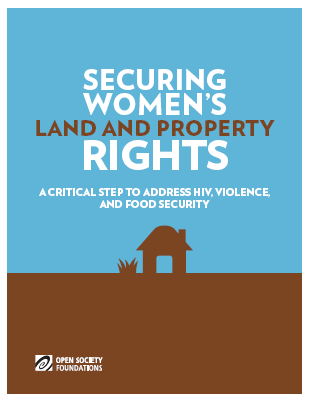Securing Women’s Land and Property Rights: A Critical Step to Address HIV, Violence, and Food Security
In many parts of the world, women’s rights to land and property are systematically denied. Women have fewer or less secure rights than men, and discriminatory attitudes and practices undermine them. This leaves many women vulnerable, and almost entirely dependent on the men in their lives for basic economic survival.
Dependance on men can lead to entrapment in abusive relationships, less control over sexual relations, and less ability to produce food or secure food.



